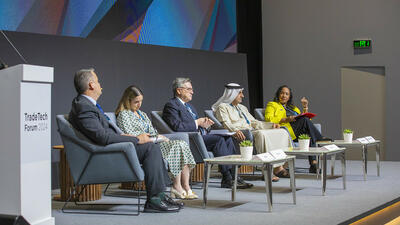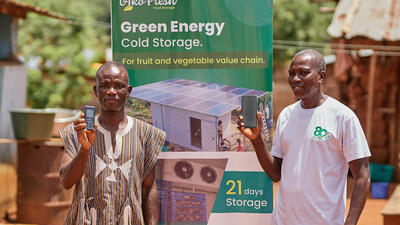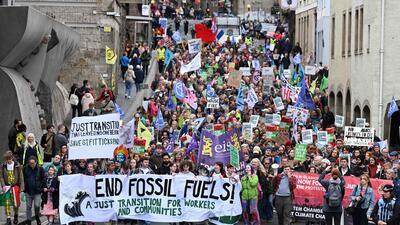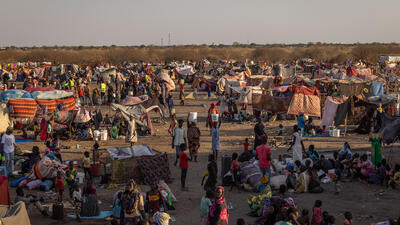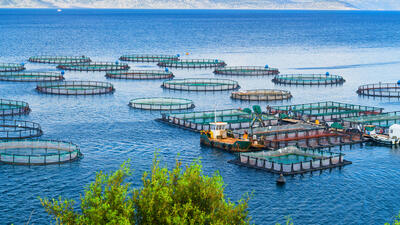

Seven priorities for global energy governance
Energy ministers of the Group of Seven (G7) industrialized nations recently signed a joint statement on energy security. Its fundamental principle was that energy security is a common responsibility.
A given nation relies on neighbouring countries and on coordinated solutions to overcome weaknesses and provide that security. However, the foundation for a successful international collaboration must be built on robust and balanced policy frameworks in every partner country.
It is estimated that US$48 trillion, or 60% of annual global GDP, must be invested in energy infrastructure over the next two decades. Political and regulatory risks are considered the main issues preventing the mobilization of the capital required to make those improvements.
Balanced policy frameworks for energy in the areas of security, equity and environmental sustainability are the best guarantee to avoid sudden and dramatic policy changes. Political risk is therefore a condition for the mobilization of the required capital and delivery of long-term energy security. At the World Energy Council (WEC) this is referred to as ‘balancing the energy trilemma.’ This framework ultimately promotes the prosperity and competitiveness of individual countries. Yet, the annual WEC Energy Trilemma Index illustrates that much work remains to be done in most of the 129 rated nations.
Awake at nightThe risks and challenges to the energy landscape are effectively illustrated by the WEC’s 2015 World Energy Issues Monitor. It shows that energy leaders from over 80 countries remain concerned about energy and commodity price volatility and climate framework uncertainty. They also fear market distortions through stop-and-go energy subsidies and trade barriers as well as outdated market design.
While the specific national context requires that every country finds its own solution to creating the best trilemma balance, it is clear that answers to many energy challenges can be found only through crossborder collaboration. The three guiding questions that should drive international cooperation in energy are:
- 1. Which fundamental energy-related prosperity objectives can be achieved only through international cooperation?
- 2. Which existing market distortions or failures prevent the realization of effective solutions to question 1 and require internationally coordinated solutions?
- 3. Which strategic technology areas support the solving of question 1 and deserve priority status for internationally coordinated research and development (R&D)?
With these challenges in mind, international collaboration and governance efforts should be focused on these priority areas:
- Efficient resource sharing through regional integration of infrastructure
- Universal access through promotion of adequate policies, skills development, innovative business models and financing schemes
- Mitigation of carbon dioxide emissions through an international climate-framework agreement and burden sharing
- Sun-setting of distorting fossil fuel subsidies that discourage energy efficiency
- Sharing of green technologies and solutions through elimination of tariff and nontariff barriers
- Revision and regional alignment of outdated market design in electricity and natural gas
- Coordinated R&D in system-critical components with a focus on electric storage and carbon capture/utilization and storage
Clearly, all of these issues urgently need greater international cooperation and further progress than has been observed over the past two decades. Intergovernmental organizations and initiatives struggle to make meaningful progress, with current efforts often focused on merely avoiding back-tracking. The real challenge is strengthening existing institutions and adapting to the changing energy landscape.
The International Energy Agency (IEA), for example, institutionalizes the joint approach among the Organisation for Economic Co-operation and Development (OECD) member countries regarding the strategic petroleum reserves. However, having China and India as full members will be critical for the future credibility of the effort. Regional organizations promote the complex objective of cross-border infrastructure integration in all regions, generally with only limited or slow progress, but this is an area where real progress can be made. The United Nations Framework Convention on Climate Change (UNFCCC) and the United Nations Sustainable Energy for All initiative (SE4All) face the most challenging objectives. These can only be achieved through stronger international cooperation to deliver universal access to modern energy services and avoid climate destabilization.
It is also clear there can be no effective implementation of international climate framework or substantive movement on many of these issues in the absence of strong and balanced national energy policy frameworks. Setting up an international climate framework without well-structured, balanced ‘trilemma frameworks’ is about as meaningful as winding a broken watch.
The window of opportunityAs we look to the future we must keep ambitions high for the 21st Conference of the Parties to the United Nations Framework Convention on Climate Change (COP21) meeting later this year in Paris. The UN’s SE4All process has generated new international dynamics, correctly identifying that energy access is critical for the entire development agenda. However, the issue must now move towards real action and the energy sector has a clear role to play in this effort.
This year provides ample opportunities for existing global governance institutions to show they are mastering the challenges they were set up to address. Delivery of a clear, unambiguous and equitable international climate agreement at COP 21, the definition of energy access as a Sustainable Development Goal and delivery of an implementable roadmap for universal energy access are vital. Neither should we forget the World Trade Organization’s Ministerial Conference in Nairobi, Kenya, in December, where conclusion is expected on tariff limitations for environmental goods. It is our moral responsibility to use those opportunities and actively support these institutions and initiatives.




